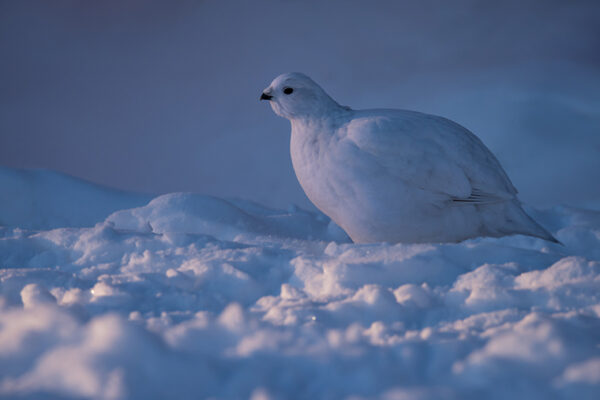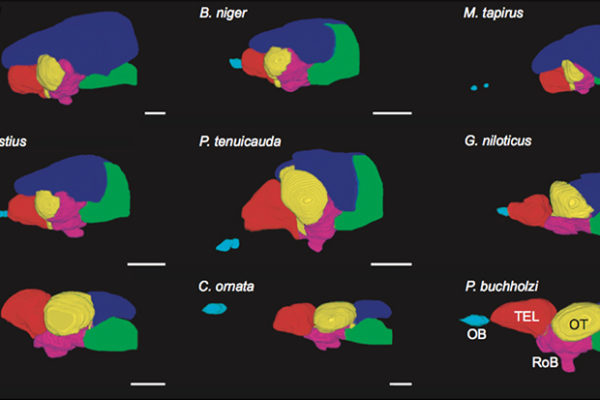Big brains or big guts: Choose one
A global study comparing 2,062 birds finds that, in highly variable environments, birds tend to have either larger or smaller brains relative to their body size. New research from Carlos Botero, assistant professor of biology in Arts & Sciences, finds birds with smaller brains tend to use ecological strategies that are not available to big-brained counterparts.
New maps hint at how electric fish got their big brains
Washington University researchers have mapped the regions of the brain in mormyrid fish in extremely high detail. In a study published in the Nov. 15 issue of Current Biology, they report that the part of the brain called the cerebellum is bigger in members of this fish family compared to related fish — and this may be associated with their use of weak electric discharges to locate prey and to communicate with one another.
Brain’s flexible hub network helps humans adapt
New research from Washington University in St. Louis offers compelling evidence that a well-connected core brain network based in the lateral prefrontal cortex and the posterior parietal cortex — parts of the brain most changed evolutionarily since our common ancestor with chimpanzees — contains “flexible hubs” that coordinate the brain’s responses to novel cognitive challenges.


